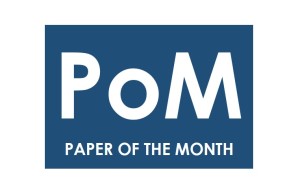Das Prodekanat für Forschung würdigt jeden Monat UKE Autorinnen und Autoren einer herausragenden Publikation, die in den vorangegangenen 2 Monaten hochrangig publiziert wurde. Ziel ist es, die am UKE enstandenen Forschungsergebnisse mit ihrer Bedeutung in der Wissenschaft einer größeren Öffentlichkeit am UKE vorzustellen. Der Aufruf zur Teilnahme richtet sich an Wissenschaftlerinnen und Wissenschaftler aller Fachgebiete. Einreichungsfrist für eine Bewerbung um die Auszeichnung des "Paper of the Month" ist jeweils Ende eines Monats (siehe Bewerbungsformular).
Das PoM-Archiv finden Sie hier:
UKE Paper of the Month August 2024
The NR4A2/VGF pathway fuels inflammation-induced neurodegeneration via promoting neuronal glycolysis
Marcel S. Woo*, Lukas C. Bal*, Ingo Winschel, Elias Manca, Mark Walkenhorst, Bachar Sevgili, Jana K. Sonner, Giovanni Di Liberto, Christina Mayer, Lars Binkle-Ladisch, Nicola Rothammer, Lisa Unger, Lukas Raich, Alexandros Hadjilaou, Barbara Noli, Antonio L. Manai, Vanessa Vieira, Nina Meurs, Ingrid Wagner, Ole Pless, Cristina Cocco, Samuel B. Stephens, Markus Glatzel, Doron Merkler and Manuel A. Friese
ABSTRACT:
A disturbed balance between excitation and inhibition (E/I balance) is increasingly recognized as a key driver of neurodegeneration in multiple sclerosis (MS), a chronic inflammatory disease of the central nervous system. To understand how chronic hyperexcitability contributes to neuronal loss in MS, we transcriptionally profiled neurons from mice lacking inhibitory metabotropic glutamate signaling with shifted E/I balance and increased vulnerability to inflammation-induced neurodegeneration. This revealed a prominent induction of the nuclear receptor NR4A2 in neurons. Mechanistically, NR4A2 increased susceptibility to excitotoxicity by stimulating continuous VGF secretion leading to glycolysis-dependent neuronal cell death. Extending these findings to people with MS (pwMS), we observed increased VGF levels in serum and brain biopsies. Notably, neuron-specific deletion of Vgf in a mouse model of MS ameliorated neurodegeneration. These findings underscore the detrimental effect of a persistent metabolic shift driven by excitatory activity as a fundamental mechanism in inflammation-induced neurodegeneration
STATEMENT:
This study identifies a novel neuronal pathway activated by chronic dysregulation of the excitation/inhibition balance, triggered by persistent neuroinflammation and resulting in neuronal demise. It directly connects neuronal activity with metabolism and cell death. These findings advance the current understanding of inflammation-induced neurodegeneration and have significant implications for the development of targeted neuroprotective therapies.
BACKGROUND:
This work was conducted at the Institute of Neuroimmunology and Multiple Sclerosis (INIMS) under the supervision of Prof. Manuel A. Friese. The INIMS’ main interest is to study the interactions of the immune and nervous system. It was mostly performed by the Clinician Scientists Dr. Marcel S. Woo and Lukas Bal. This work is supported by the Deutsche Multiple Sklerose Gesellschaft (DMSG), grant number V 6.2 to MAF. MSW is supported by the Joachim Herz Stiftung (850035), the Else Kröner Fresenius-Stiftung Memorial Stipend (2023_EKMS.03), and the Werner Otto-Stiftung (7/97). LCB is supported by the medMS doctoral program of the Gemeinnützige Hertie-Stiftung (P1180046), the Else Kröner-Fresenius Stiftung (Else Kröner Promotionskolleg - iPRIME), and the program “Studentische Forschergruppen” by the “Exzellenzinitiative” of the University of Hamburg.
J Clin Invest. 2024;134(16):e177692.
Congratulations to all authors!
Next PoM: To apply, the publication must have been published in September 2024. Applications will be considered in two rounds of the selection process, i.e. two months. Please send your completed PoM application to Dr. Anne Wulf by 30/09/2024.

